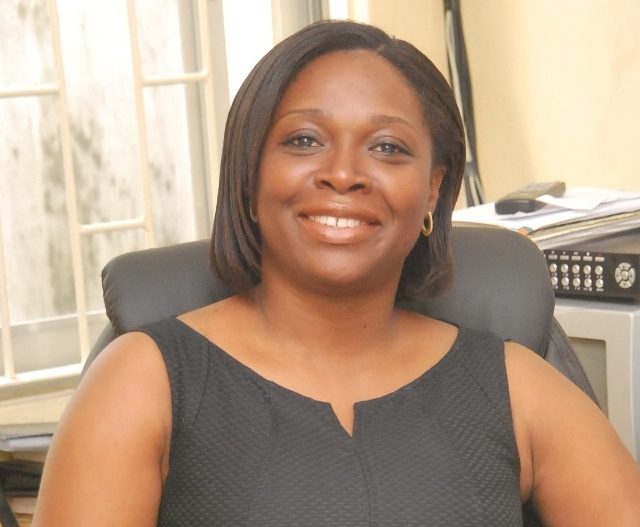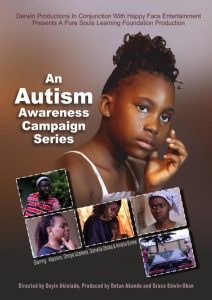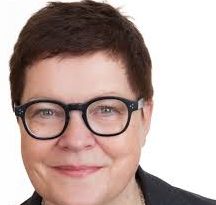Mrs. Adedotun Akande is a dynamic woman who strongly believes that there is ability in disability and that was perhaps the idea behind her establishing the first autism center in Nigeria over a decade ago after her two years old son was diagnosed of autism.
Mrs. Akande left her banking job to establish Patrick Speech and Languages Center in Lagos not only to ensure that her son reach his maximum potential, but also assist other parents with autistic children who had nowhere to run to as support system medical, educational and social were lacking as at then.
Speaking in an interview with our correspondent recently in Lagos, Mrs. Akande who is a graduate of Economics from University of Ado – Ekiti, said her journey into the world of autism and learning disabilities has positively changed the perception of many in Nigeria with regards to autism.
She described autism as a complex developmental disabilities and added that experts believe that it presents itself during the first three years of a person’s life.
Mrs. Akande further explained that the condition is as a result of a disorder that has effects on normal brain function, affecting the development of a person’s communication, that is both verbal and non- verbal communication and a wide range of social interaction skills and behaviour.
Enumerating signs of an autistic child, she said it includes; inability to speak; jumping from one place to the other; clapping of hands; no joint attention; looking at a person or an object with one corner of the eyes; inability to answer calls or question and a host of others.
She stressed the need for parents especially mothers to monitor their children closely as early dictation leads to early intervention.
In her words, “The problem is that most mothers do not seek intervention for their autistic children until when they have grown up and by that time it would be difficult to effect positive changes in their behaviour, but when they come to us at the age of two or three, they may not stay longer in the center before one will start observing positive changes in their behaviour and within the shortest time they will be enrolled in the mainstream schools where they will learn and interact with other children.”
She frowned at parents who hide their autistic children at home without exposing them to any form of education.

“It is wrong to keep your autistic child at home because when they are enclosed in a particular environment, their behavioural challenges become worst, but when they come out and are engaged with other things, it affects their behaviour positively. They are unique children in their strength. One needs to discover where their strength is and use it to teach them, some may like music, while others like dancing and can dance from morning till night without caring for food. For those that like music, one can use music in teaching them. There is beauty in each of them, some of them are so warm.
“So, it is not ideal to hide an autistic child at home, even if you cannot afford the cost of enrolling him or her in a private center, there are inclusive units in public schools were you can register such a child early so that he or she can reach his or her maximum potential.
“When my son was diagnosed of autism, there was nowhere to run to because as at then, there was no center that takes care of such children. l found a speech therapist to work with him three days a week, l taught him all the other skills needed, with the help of his school teacher. Slowly over a period of six years, combined with music therapy, he emerged from his shell a mathematics genius,” she added.
On the center, she said it was not easy at the onset as there was little or no research on autism in Nigeria as at that time.
“For every staff l came in contact with, nobody had knowledge of what autism is all about, having obtained a Diploma in Applied Behavioral Analysis from Florida Institute of Technology in the United States, l trained them and we have train the trainers programmes. Along the line, we saw the need not only to train the staff, but also the parents and the public on the values and the best practices in autism. Now, there are many centers in Nigeria that came after us and most of them passed through our guidance,” she submitted.
According to her, one of the key challenges facing the center is the inability of parents to pay their subsidized fees.
She said: “Many people will rather spend millions to train a neuro-typical child than a child with developmental challenges. We have had to find ways to raise funds to support these families. Sometimes it is difficult to convince families to stay in therapy due to the fact that we cannot give specific time that their children will graduate from our center. When they see a little progress in the child, all they want to do is to send the child to mainstream school even when we can see clearly that the child is not ready.”
However, she stressed the need for parents to be patient when they enroll their wards in special centers, saying that parents who were involved and exercised patience with the therapy had reaped the fruit as there has been seamless integration of their children into mainstream school.
On the other hand, she appealed to government at all levels to come to the aid of private special homes by providing them with educational facilities such as sites to build centers, while adding that such assistance would go a long way in helping them to adequately cater for the needs of children with disabilities in the country.
It is interesting to note that Mrs. Akande’s deep involvement with Autism Awareness activism in Nigeria has resulted in such short films, ‘Silverlining’ which bagged an award from Nigerian film festival in 20l1. Her current film ‘Demystifying Autism’ had been nominated for the AFRIFF Awards best short film 2015.
Akande is also the ‘Vlisco Woman of the year 2015’, an honour bestowed on her for the contributions she has made to the growth of autism awareness and treatment in Nigeria.
So far, she and her team have successfully worked with and integrated over 40 children into mainstream school system even as she plans a new school facility that can accommodate and help more children and families.












